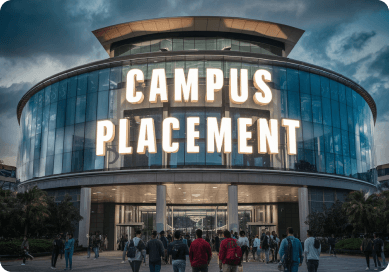Enter OTP



Lyon, France

Lyon, France

Cost Of Living

Undergraduate Fees International Students

Post Graduate Fees International Students

The Central School of Lyon stands out for its strong commitment to inclusion and social impact. It actively promotes gender equality and supports women pursuing engineering careers. The school works to inspire high school students to explore scientific fields and engineering professions. It also prioritizes access to education for students from modest backgrounds. This triple objective shapes its outreach, partnerships, and student support initiatives. At its core, the school blends academic rigor with a clear social mission.
A pioneering ethnologist and explorer, Victor is best known for leading French polar expeditions in Greenland and Antarc... View More
A pioneering ethnologist and explorer, Victor is best known for leading French polar expeditions in Greenland and Antarctica. His work bridged scientific research with indigenous study, founding the French Polar Expeditions Centre (CPEF). He authored several books to share his immersive experiences and became a prominent voice in environmental awareness. Victor’s background in engineering from Centrale Lyon informed his logistical and methodological rigor in harsh terrains. His legacy endures in the fields of anthropology and polar science, shaping both public perception and scientific protocol around extreme-environment research View Less
Riboud carved out his legacy as one of France’s greatest photographers. He captured seminal images of post‑war Asia,... View More
Riboud carved out his legacy as one of France’s greatest photographers. He captured seminal images of post‑war Asia, including The Three Banners of China and Face of North Vietnam. His work offered compelling documentary insight into geopolitical transformations. Trained as an engineer, Riboud’s methodical perspective enriched his visual storytelling—balancing technical precision with human emotion. His career demonstrates how an engineering mindset can enhance observational and compositional brilliance in creative fields. Riboud’s photographs remain central to the archives of Magnum Photos and global journalism View Less
Kruchten is a widely recognized software engineering expert. As a Canadian academic and professor at the University of B... View More
Kruchten is a widely recognized software engineering expert. As a Canadian academic and professor at the University of British Columbia, he co-developed the Rational Unified Process (RUP) and the influential 4+1 architectural view model. These frameworks remain foundational in system architecture planning. His training at Centrale Lyon gave him a strong base in systems thinking and applied mathematics, sharpening his ability to formalize complex software processes. Kruchten’s impact extends into software engineering education, enterprise architecture, and organizational development tools worldwide View Less
An early alumnus from the class of 1883, Court became a pioneering automobile manufacturer based in Lyon. His engineerin... View More
An early alumnus from the class of 1883, Court became a pioneering automobile manufacturer based in Lyon. His engineering training helped him launch heavy vehicle models during the dawn of motorization in France. Court represented the industrial spirit of his era—translating mechanical innovation into real-world manufacturing. While lesser-known today compared to modern automakers, his contribution signifies the role of engineering graduates in laying foundational roots for France’s automotive industry in the late 19th and early 20th centuries View Less
Renaudeau has been a notable leader in French aeronautics education, serving as director-general of the Institut Polytec... View More
Renaudeau has been a notable leader in French aeronautics education, serving as director-general of the Institut Polytechnique des Sciences Avancées (IPSA) and formerly at ESTACA. His engineering training at Centrale Lyon merged with his managerial acumen to shape curricula tailored to aerospace and innovation. Under his stewardship, IPSA expanded international partnerships and research focus. Renaudeau’s career shows how a leader from ECL can transform educational institutions and influence the next generation of aerospace engineers View Less
Originally trained as an engineer, Naouri shifted to art and became a leading bass‑baritone in opera. He continued stu... View More
Originally trained as an engineer, Naouri shifted to art and became a leading bass‑baritone in opera. He continued studies at Guildhall School of Music in London and established himself with performances at major European venues. His engineering background honed his discipline and analytical approach to operatic roles. Naouri’s career arc underscores how skills cultivated at Centrale can translate into precision, perseverance, and artistic excellence in performance arts View Less
Baumel entered politics, serving as a deputy in the National Assembly of France for Indre‑et‑Loire (2012–17). His ... View More
Baumel entered politics, serving as a deputy in the National Assembly of France for Indre‑et‑Loire (2012–17). His technical education gave him credibility in public debates about infrastructure, innovation policy, and industrial strategy. Baumel’s trajectory exemplifies the versatility of an engineer—with rigor in policy analysis, legislative processes, and public service. He reflects the ECL tradition of graduates stepping into governance and public administration roles View Less
Best known in niche circles, Chambon set world records in speedcubing—the art of solving the Rubik’s Cube. He clocke... View More
Best known in niche circles, Chambon set world records in speedcubing—the art of solving the Rubik’s Cube. He clocked a single solve in 9.18 seconds (Murcia Open, 2008) and an average of 11.48 seconds. Chambon’s prowess stems from sharp spatial reasoning and algorithmic mastery—aptitudes sharpened through his engineering training. After his cubing fame, he continued as a software engineer. Chambon represents how technical precision and systematic thinking can produce outstanding performance even in unconventional domains View Less
A Moroccan engineer turned politician, Balafrej studied at Centrale Lyon in the ’90s. He later joined the Moroccan par... View More
A Moroccan engineer turned politician, Balafrej studied at Centrale Lyon in the ’90s. He later joined the Moroccan parliament (since 2016) and sits on the board of the African Innovation Foundation. He advocates for technical innovation, policy reform, and inclusive economic models across Africa. His engineering education equipped him with analytical skills, systems thinking, and credibility in dialogues bridging technology and public policy in emerging markets View Less
A German engineer from Centrale Lyon, Franz became CEO of Lufthansa (2011–14). While not a typical ECL alum, his broad... View More
A German engineer from Centrale Lyon, Franz became CEO of Lufthansa (2011–14). While not a typical ECL alum, his broad engineering and leadership experience aligned with ECL’s multidisciplinary spirit. His tenure involved strategic shifts in airline management, modernization, and sustainability direction. Franz’s path illustrates how high-level industry roles can emerge from engineering training combined with cross-sector adaptability View Less
École Centrale de Lyon boasts a state-of-the-art campus in Écully, covering 17 hectares of green space. The infrastructure includes modern teaching and research facilities, equipped laboratories, and a library designed to foster innovation and academic collaboration. The campus also features extensive sports facilities, student residences, and dining areas, creating a balanced environment for both learning and leisure. Specialized labs in acoustics, nanotech, and energy systems support cutting-edge research. The integration of sustainable practices is visible in the campus's design, with eco-friendly buildings and energy-efficient systems. It’s a place where students can immerse themselves in both academic excellence and vibrant campus life.
Student life at École Centrale de Lyon thrives on its dynamic campus culture. With over 110 student clubs and associations, including sports, arts, technology, and humanitarian groups, students have ample opportunities to explore their interests beyond academics. The Bureau des Élèves (BDE) plays a pivotal role in organizing events like Integration Week, fostering a sense of community among new and international students. The campus is equipped with relaxation areas, sports facilities, and active support for a dynamic community life, ensuring a balanced lifestyle. Additionally, the presence of a student-managed bar and various recreational spaces adds to the vibrant atmosphere. This inclusive environment encourages personal growth, cultural exchange, and lasting friendships. Whether engaging in club activities, participating in events, or enjoying campus amenities, students experience a fulfilling and enriching life at Centrale Lyon.


Centrale Lyon's career services are designed to bridge the gap between academic training and professional success. The school mandates nine months of internships and encourages three to six months of international mobility, ensuring students gain practical experience. Through its partnership with JobTeaser, the Career Center serves as a vital platform for posting internships, first jobs, work-study programs, and theses, connecting students with potential employers. The institution also organizes recruitment events throughout the year, facilitating direct interactions between students and companies, thereby enhancing employment opportunities. With over 1,400 internships offered annually and 100 internships per year with partner companies, Centrale Lyon demonstrates a strong commitment to student employability. This comprehensive approach underscores the school's dedication to preparing students for successful careers in various industries.
The below information is required while
completing the university application :
Core documents you typically need to apply for a Bachelor’s admission at École Centrale de Lyon (especially for the General Engineering cycle or the Bachelor in Data Science for Responsible Business):
Secondary school diploma and transcripts
Official records from your high school (e.g. French baccalauréat, IB, A?levels, or equivalent), including grades in relevant subjects like mathematics, physics, or computer science
Completed online application form
Submitted via the official application platform, with all fields accurately filled in, and any required learning?agreement if you're applying as a double?degree or exchange student
Résumé or CV
A concise summary of your academic background, extracurricular activities, internships or projects—highlighting your strengths and motivations
Motivation letter or personal statement
A focused, personalized explanation of why you’re applying, your interests in engineering or data science, and how you align with Centrale Lyon’s programme and values
Proof of language proficiency
English-medium programmes → IELTS (≥?6.0), TOEFL iBT (≥?72), TOEIC, EFSET or equivalent.
French-medium programmes → DELF/DALF or TCF at least B2 level
Copy of your passport (usually first and last pages) plus a recent passport?style photo (JPEG, under 2?MB) for identity verification and administrative processes
Know more
École Centrale de Lyon has a strong campus recruitment ecosystem driven by structured internships and direct industry engagement. Students take part in multiple internships—execution, application, and final-year thesis—many of which lead to pre-placement offers. The school hosts regular career fairs, company days, and recruitment events that bring top employers face-to-face with students. Career services offer support through resume polishing, mock interviews, and access to alumni working across global firms. Recruiters include major names from sectors like aerospace, automotive, tech, and consulting. It’s a setup where academics and career building move in sync—engineered for real outcomes.


École Centrale de Lyon ranks among the top French engineering schools for academic excellence and research. It’s globally recognized in mechanics and mathematics, with high-impact publications and strong industry collaboration. The school holds hundreds of patents, earns millions in research funding, and produces nearly a thousand papers yearly. It’s also ranked among the top five globally for industry-linked research output. Beyond academics, it’s a leader in sustainability, earning top marks for its CSR and ecological commitments. Simply put, this is a school that delivers—on innovation, impact, and influence.


Centrale Lyon reports about €15.5 million in annual research contract revenue, over 200 industrial contracts per year, 900+ publications, and a portfolio of 247 patents. These figures reflect its deep industrial integration and capacity for applied innovation across acoustics, nanotechnology, fluid mechanics, and energy — evidence of its sustained research excellence
In 2023, L’Étudiant ranked Centrale Lyon 11ᵗʰ among engineering schools in France, while Le Figaro Étudiant placed it 7ᵗʰ. In broader rankings focused on ecological and social transition (ChangeNOW & Les Echos START), Centrale Lyon ranked 2ⁿᵈ in France. That reflects its dual strengths in program quality and social responsibility
In the Shanghai Academic Rankings by Subject 2022, École Centrale de Lyon placed in the 151–200 band worldwide for both mechanics and mathematics. This recognition stems from high-impact research and strong publication rates in these core fields—underscoring ECL’s status as a global player in engineering sciences
In 2017, Centrale Lyon launched its “ECL 4.0” strategic renewal project. The initiative modernized its infrastructure, deepened academic-industry ties, and reinforced cross-disciplinary collaboration. This plan laid the groundwork for infrastructure upgrades, research expansion, and educational integration—shaping the school’s trajectory toward digital transformation and territory-wide innovation leadership
The school’s student racing team, Écurie Piston Sport Auto (EPSA), achieved major milestones: in 2009, its hybrid prototype Osmoz won both the General Prize at Trophée SIA and Michelin Innovation Award; in 2011, it claimed three awards including Michelin Innovation, Utac Safety, and Communication at the SIA Trophy. These successes highlight hands-on student design, interdisciplinary learning, and real-world engineering engagement at ECL
In 2007, the Intergroupe of Centrale schools formally became the Centrale Group, encompassing campuses in Lille, Lyon, Marseille, Nantes, Paris—and later Beijing. The same year, the school celebrated its 150ᵗʰ anniversary and 40 years at Écully. Joining the Group enhanced resource sharing, executive mobility, and global branding under a unified network of French engineering schools
In 2021, ENISE (Saint‑Étienne’s national engineering school) became ECL’s first internal school. In 2022, ECL co-founded the Collège d’Ingénierie Lyon‑Saint‑Étienne along with INSA Lyon, ENTPE, and Mines Saint‑Étienne. These regional alliances enhance research, academic synergy, and student opportunities across the Auvergne‑Rhône‑Alpes region
Starting in the early 1990s, Centrale Lyon aggressively expanded its global partnerships—first with Central and Eastern Europe (from 1992), then South American universities (around 2000), and by 1996 it joined the TIME network for double degrees across top European engineering schools. These milestones broadened student mobility, research collaboration, and double-degree options, positioning ECL as a truly international engineering hub
In 1967, the school relocated to a 17-hectare green campus in Écully, designed by architect Jacques Perrin‑Fayolle. This move enabled modern expansion and established a spacious, purpose-built education environment. In 1970, the institution officially adopted the name École Centrale de Lyon. These developments marked its transition from a city-based technical school to a major national engineering institute with modern infrastructure and broader ambitions
Founded on November 3, 1857, by François Barthélemy Arlès‑Dufour and Désiré Girardon, École Centrale lyonnaise pour l’Industrie et le Commerce set out to train elite engineers in chemistry, mechanics, civil engineering, and design. By 1860, it graduated its first class—14 students—marking the institution’s commitment to industrial competence and academic rigor. This early milestone planted the seeds for an educational model that merges hands‑on technical training with innovation, a principle that still defines Centrale Lyon today
École Centrale de Lyon is deeply rooted in innovation, with research driving much of its academic energy. The school hosts several top-tier labs in collaboration with CNRS, focusing on areas like acoustics, nanotechnology, fluid mechanics, and energy systems. Its interdisciplinary approach connects engineering theory with real-world industrial challenges. Students and faculty work closely with industry partners on cutting-edge projects and prototypes. Research here isn’t siloed—it’s integrated into the curriculum, pushing students to think beyond textbooks. The result is a culture where breakthroughs are expected, not exceptional.
Researchers from Centrale Lyon, CNRS, Université Grenoble Alpes, and associated institutions patented an optical particle detector that uses a light‑scattering channel and photodetectors. It features an integrated optical waveguide to redirect unscattered light back into the channel, enhancing detection sensitivity for fluid‑borne particles. This design improves signal quality in flow cytometry, environmental monitoring, and microfluidic systems. It reflects how Centrale Lyon collaborates on cutting‑edge instrumentation, translating academic research into precision sensing tools capable of tracking airborne or suspended particulates
This invention captures elastic properties of materials by analyzing surface shear-wave phase velocities. It records dispersion curves—frequency vs. velocity—and uses these to map elasticity as a function of depth beneath the surface. It’s non‑destructive, requiring only surface wave excitation and signal analysis, ideal for skin diagnostics or biomechanical evaluation. This tool showcases how Centrale Lyon’s research pushes beyond fundamental mechanics into biomedical engineering and non‑invasive diagnostics
Developed in partnership with TotalEnergies and CNRS, this lubricating fluid uses exfoliated molybdenum disulfide (MoS₂) nanosheets dispersed in water and glycerol. The nanosheets are formed in-situ in the fluid by liquid-phase exfoliation. This eco-friendly lubrication reduces friction and wear in moving systems, aiming to replace traditional oil-based lubricants. The clean chemistry and high-performance lubrication illustrate sustainable innovation—tied to energy, transport, and industrial engineering priorities
In collaboration with Supergrid Institute, Université Lyon 1, and CNRS, Centrale Lyon contributed to a transformer housing design where windings are embedded in grooves on the insulating enclosure surface. Conductive layers line each groove, enhancing electrical insulation and thermal management. This toroidal transformer achieves improved safety and performance in high‑voltage applications—such as grid infrastructure, power transmission, or renewable energy deployment. It reflects the school’s engagement in power engineering and large‑scale industrial innovation
Centrale Lyon teamed with CNRS, Université Lyon 1, INSA Lyon, and partners to create a sensor system that identifies fluid medium properties via an array of semiconductor-based photoelectric transducers. Light pulses travel through the fluid, and the scattered light’s photoelectric response is collected and processed. By generating an electronic “signature matrix,” this device detects chemical or biological agents in the fluid. Applications include environmental sensing, water quality monitoring, or biomedical diagnostics—bridging core engineering, optics, and data science
Under the guidance of experts like Geneviève Comte-Bellot and Michel Sunyach, Centrale Lyon built France’s first silent wind tunnel and anechoic chamber dedicated to aeroacoustics. This pioneering testbed enabled detailed experiments on fan and airfoil noise, combining turbulent fluid mechanics and sound research. It became central to modeling noise in aerospace, rail, and automotive sectors. Its establishment demonstrates how engineering infrastructure at Centrale Lyon has provided experimental capabilities for decades, fueling innovation in noise reduction, transport design, and acoustic modeling










Embark on your educational journey with confidence! Our team of admission experts is here to guide you through the process. Book a free session now to receive personalized advice, assistance with applications, and insights into your dream school. Whether you're applying to college, graduate school, or specialized programs, we're here to help you succeed.
